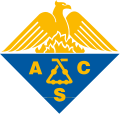

Joint Information Systems Committee (JISC) is a consortium that announced its partnership with the American Chemical Society (ACS) for publications. With this development, researchers across the UK would have better access to articles in OA journals and periodicals of chemistry.
The publications department will not charge any money from the researcher for publishing articles in the OA format in ACS journals. These researchers have to be affiliated to universities and institutes in the UK. All the scientific articles are accessible through the open access (OA) model. The agreement between ACS and JISC would be effective for three years, dated May 2022.
JISC’s content marketing head, Anna Vernon, issued a press release stating the agreement between ACS and JISC is remarkable for all researchers based in the UK. As the OA movement is gaining momentum, they will now be providing many OA publishing modes in all ACS journals. This would facilitate collaborations between authors, institutions, and publications of chemistry. Thus, researchers in the UK would be improving their work and discoveries in the world of chemistry and interdisciplinary areas.
James Milne, the president of the publications department of ACS, also issued a press statement, emphasizing how transformative was the impact of this innovative agreement with JISC. World-class path-breaking research is being conducted by scientists in the UK. They regularly publish their work in ACS journals, which always adhere to high standards of quality and integrity. With this agreement, the reach of chemistry articles will be extended to the global community of chemists. The findings published would benefit both the funder and the institutions.
In recent times, ACS has been quietly making efforts to transition into the OA model of publications. Its read and publish program is a significant effort in this direction, supporting OA researchers. The program is being practiced in more than 400 institutions and more than 20 countries, enabling rapid growth in the readership of OA articles. ACS is a society that is committed to innovations in the open science movement, serving its growing demand in the author and reader communities.



